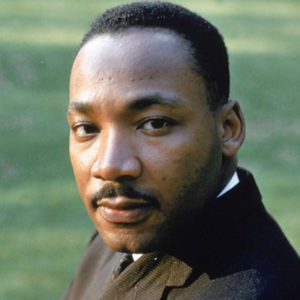MLK and International Freedom Movements
 This year the nation is commemorating the 50th anniversary of Dr. Martin Luther King Jr’s assassination. Much of the focus has been on his activism within the many civil rights struggles throughout the United States. It is commonly believed that King’s interest in global civil rights issues began with his 1967 Riverside Church speech railing against the Vietnam War. King made the connection between domestic terrorism against blacks in the South and international terrorism against the Vietnamese, both at the hands of the white establishment.
This year the nation is commemorating the 50th anniversary of Dr. Martin Luther King Jr’s assassination. Much of the focus has been on his activism within the many civil rights struggles throughout the United States. It is commonly believed that King’s interest in global civil rights issues began with his 1967 Riverside Church speech railing against the Vietnam War. King made the connection between domestic terrorism against blacks in the South and international terrorism against the Vietnamese, both at the hands of the white establishment.
However, King’s international activism began ten years before when he traveled to Ghana in 1957 to participate in the new country’s independence ceremonies and to have a private meeting with the newly-minted prime minister, Kwame Nkrumah. This was his attempt to connect the American civil rights movement, specifically the Montgomery Bus Boycott, with the struggle of oppressed people globally. He attended the ceremonies with other American civil rights leaders and civil servants like Ralph Bunche, A. Philip Randolph, Adam Clayton Powell, and then Vice President Richard Nixon. Before returning to the United States, King also visited Nigeria and London, where he had another private meeting with C.L.R. James, a Trinidadian public intellectual who was inspired with the success of the Montgomery Boycott.
King would travel to Nigeria again in 1960 to meet with its first president, Nnamdi Azikiwe, and attend his inauguration. He also went on a five-week tour of India in 1959. Of course, King was inspired by Mahatma Gandhi’s nonviolence philosophy and was able to meet with other Indian peace activists there, as well as with Prime Minister Jawaharlal Nehru. King then met with the Algerian president, Ben Bella, who was instrumental in his country’s liberation movement against France, to discuss a wide range of issues such as racial injustice and the Cuban Missle Crisis.
“As I sat talking with Mr. Ben Bella, he displayed, again and again, an intimate knowledge of the Negro struggle here in America,” King said.” The battle of the Algerians against colonialism and the battle of the Negro against segregation is a common struggle.”
Jamaica was a common destination for King, where he wrote many of his books and speeches and paid homage to Marcus Garvey while in Kingston giving a speech in 1965.
Being ahead of the curve and on the right side of history, King took a strong stand against South Africa’s white regime when he co-authored the “Appeal for Action Against Apartheid” in 1962 with African National Congress President Chief Albert Lutuli.
But, of course, King was always on the right side of history in many other ways too!